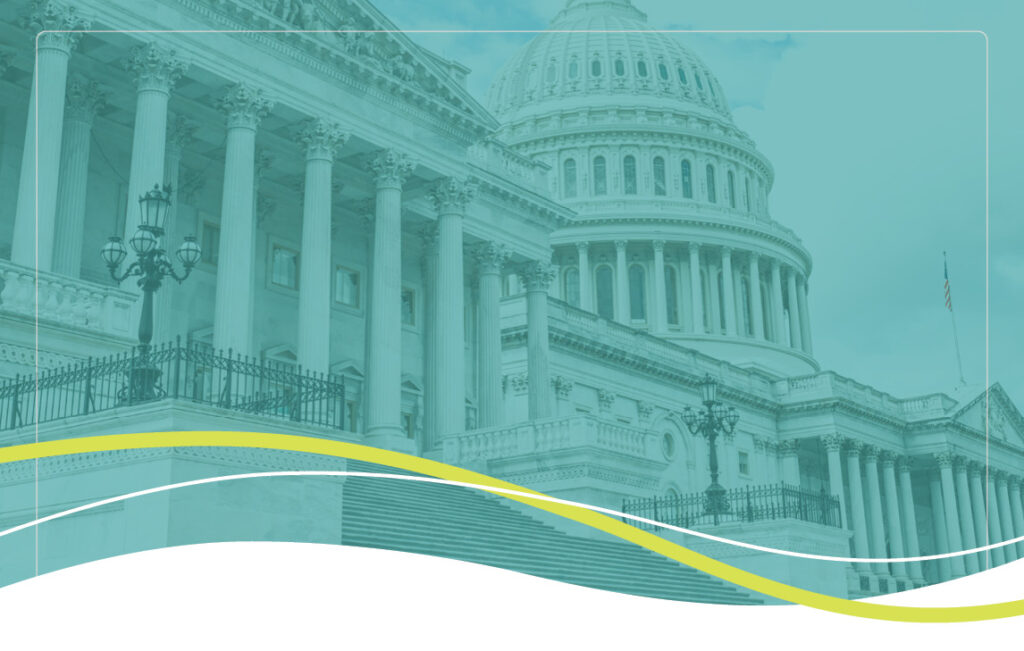The Importance of Impact: Q&A with Sellers Dorsey SVP, Brian McGuckin

For more than twenty years, Sellers Dorsey has supported transformational change in healthcare. Partnering with states, providers, health plans, and other stakeholders, the Firm has focused on designing programs that enhance healthcare quality and access for underserved populations. These pillars are built upon impact, a driving force that has motivated the Firm’s mission since its founding and continues to guide its direction toward the future.
In this engaging Q&A, Sellers Dorsey Senior Vice President, Brian McGuckin, addresses the importance of impact and the work Sellers Dorsey has done alongside its clients to create healthier lives for Medicaid beneficiaries and vulnerable populations across the country.
Q: What do you feel is the importance of quality and access in the context of Medicaid? How do these principles impact one another?
Brian: Both pillars, quality and access, relate back to one thing, and that’s the impact on Medicaid beneficiaries. The interplay between these principles is clear. Improving quality and access to healthcare results in a healthier Medicaid population. Our firm’s vision is to enable people to live their healthiest lives by strengthening and improving the Medicaid program.
Even for individuals who have commercial health insurance, it’s often difficult to get an appointment with the specific providers they need to see at the specific time they need to see them. For those on Medicaid, it’s even more difficult because those clinicians will be paid significantly less for providing the same service.
Our work with clients aims to design and implement programs that promote quality and access simultaneously. By understanding the connection among these three principles, we can work towards the goal of delivering the best possible care to all while reducing disparities and improving overall population health. That’s our goal at Sellers Dorsey, to create healthier lives for underserved populations through our work with clients across the country.
Q: In your view, what are the most significant challenges or disparities related to healthcare that Medicaid beneficiaries often face? How can these challenges be effectively addressed within the Medicaid program?
Brian: A lot of the Firm’s initiatives are based on increasing overall reimbursement for providers who serve the Medicaid population, and that is ultimately one of the biggest challenges we see. When you have providers who are in areas where the vast majority of people they’re serving are on Medicaid or maybe even uninsured, their reimbursements aren’t meeting their basic costs. They can’t keep their doors open because the economics just don’t work. If a provider is not reimbursed for the full cost of providing services, it’s extremely difficult to survive.
The programs that we work on start with that basic understanding. We’re trying to get the necessary funds to the providers who are serving the Medicaid population so that they can not only meet their basic costs, and keep their doors open, but have additional funding so they can innovate and invest in technology that will help them grow and expand and provide high-quality care to those who need it.
Additionally, healthcare is moving to payment based on improved quality and outcomes instead of payment for volume of services. Sellers Dorsey has been moving in that same direction for several years within the Medicaid program by obtaining additional funding through innovative Medicaid financing initiatives that encourage improved quality and access. By measuring that progress and rewarding providers for making improvements in those areas, that will ultimately result in improved outcomes which will enhance the health and quality of life for Medicaid beneficiaries. That’s how Sellers Dorsey ultimately makes an impact through work with our clients.
Q: Health outcomes often differ based on factors such as race, ethnicity, and income. How can strategies be implemented in the Medicaid program to reduce these disparities and improve health outcomes for marginalized communities?
Brian: Unfortunately, healthcare is at an early stage in reducing disparities of race, ethnicity, and socioeconomic status. As a Firm, when we facilitate a specific initiative, we’re looking to see if there are improvements in access, but often the data isn’t there and isn’t stratified by race and ethnicity. That’s one of the biggest challenges, is not understanding what the current state of access is due to lack of data. Providers and hospitals understand the importance of collecting this data, but there are many operational considerations that go into collecting this information.
Resources are tight and operational changes are needed. Sellers Dorsey is really focused on that first stage to ensure that data is collected so we can begin to look scientifically at what’s happening in terms of disparities in quality and access and then formulate a plan for what we need to do to improve those disparities and continue to evaluate whether those strategies are working.
Q: Once the data to determine access is collected, what’s next?
Brian: I think what’s next is understanding that there are all sorts of factors that determine a person’s health including food security, nutrition, housing, and transportation. Several states have been utilizing Medicaid financing initiatives to address these social determinants of health, and I think overall, people are beginning to realize how important those pieces are to determine someone’s overall health. Still, it’s important for the infrastructure of the healthcare system to keep up with that understanding. I think we’re moving in the right direction, but changes like that are slow and can take a long time.
In January of 2023, CMS released guidance modifying “in lieu of services,” allowing Medicaid managed care plans to offer services like housing and nutrition supports as substitutes for standard Medicaid benefits. For example, a state could authorize in-home prenatal visits for at-risk pregnant beneficiaries as an alternative to traditional office visits. Additionally, in December 2022, CMS presented guidance on how states can address health-related social needs (HRSN) through Section 1115 demonstration waivers, providing services like housing and nutrition supports and HRSN case management. Moving forward, it will be increasingly important to see how these initiatives are not only funded and implemented but also measured in terms of outcomes.
Q: Why focus on impact? What is the Firm’s ultimate goal?
Brian: As a Firm, we’ve been focused on the shift to improving the quality of care for low-income populations for many years and that will continue to be our focus into the future. At Sellers Dorsey, our team is committed to helping Medicaid beneficiaries get access to quality healthcare services, ensuring that care meets people where they are and results in a healthier population.
Many of our initiatives include increasing overall reimbursement for providers struggling to offer access to quality healthcare services due to low reimbursement rates. We design programs to secure that critical funding for these safety net providers which, in turn, enables them to improve access to quality care and the latest treatments for their Medicaid populations. This can be seen in our work with GA-STRONG as well as our work in Kentucky where we’ve helped expand access and improve patient outcomes for some of the most significant health systems in those states. These kinds of projects propel the improvement of quality and access of healthcare for low-income populations.
While there is much work still to be done, the Firm is excited to explore new opportunities and initiatives with clients focused on improving quality and access to care.
Discover the impact Sellers Dorsey is making across the country! Click here to explore our case studies.




